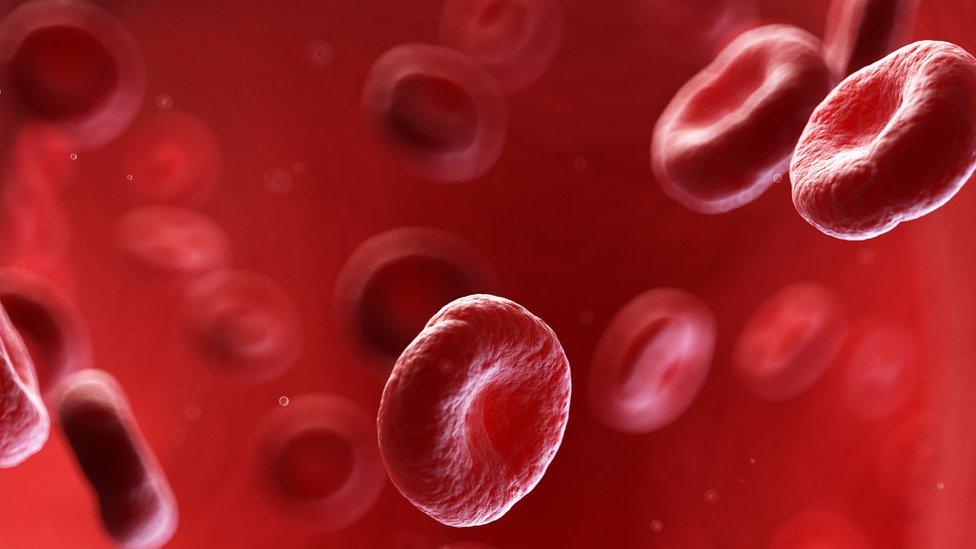Haemophilia: What is it? What is the new treatment?
- Published
- comments

Doctors in the UK say that a new therapy has 'cured' people with the bleeding disorder haemophilia B.
Haemophilia is a rare condition that is usually inherited - meaning you're born with it as it's passed down in your genes from your parents.
This new treatment corrects the problem with the genes which leaves people who have the disorder struggle to stop bleeding if they are injured.
The medical team says the majority of adults with haemophilia could be cured in the next three years.
What is haemophilia?
WATCH: Invisible Conditions - what not to say to someone
People with haemophilia have trouble with their blood clotting - that's the process in which blood changes from a liquid to form a thick gel.
This means that once they start bleeding, they find it hard to stop.
This is because normally when you bleed substances in your blood which are called clotting factors mix with special blood cells called platelets to make your blood sticky and form a clot or scab. This is what makes the bleeding stop eventually.
However people with haemophilia do not have as many clotting factors as they should have in their blood and as a result they bleed for longer than usual.
People with haemophilia may have:
nosebleeds that take a long time to stop
bleeding from wounds that lasts a long time
bleeding gums
skin that bruises easily
pain and stiffness around joints, such as elbows, because of bleeding inside the body (internal bleeding)
Source: NHS
The symptoms of haemophilia can be mild to severe, depending on how much less clotting factors you have compared to normal levels.
Most people who have the condition are male.
There are two main types of haemophilia: haemophilia A and haemophilia B.
In haemophilia A there is a lack or total absence of clotting factor VIII (eight).
In haemophilia B there is a lack or total absence of clotting factor IX (nine).
This new treatment can help people who have haemophilia B.
People with haemophilia B need to inject themselves regularly, to make up for the lack of clotting factor in their blood.
What is the new treatment?
The research was carried out by the University College London (UCL), the Royal Free Hospital in London, and biotechnology company Freeline Therapeutics
They found that just one injection of the gene therapy, called FLT180a, meant that nine out of 10 patients no longer needed their clotting factor injections.
A gene is a section of genetic material - called DNA - which is passed down from our biological parents.
"We're very excited by the results," said Prof Chowdary who was involved with the study.
She added that curing haemophilia could "be a reality for the majority of the adults in the next one to three years."
Scientists are still trying to find out how long this treatment lasts and whether it could also be offered to children with haemophilia.
Clive Smith, chairman of the Haemophilia Society charity, said: "This initial data is promising, but we continue to monitor gene therapy trials closely and cautiously, as with all new treatments."
He added that this new treatment needs to be made available "if they are shown to be safe and effective."
- Published5 October 2021
- Published29 March 2018
- Published28 March 2018
